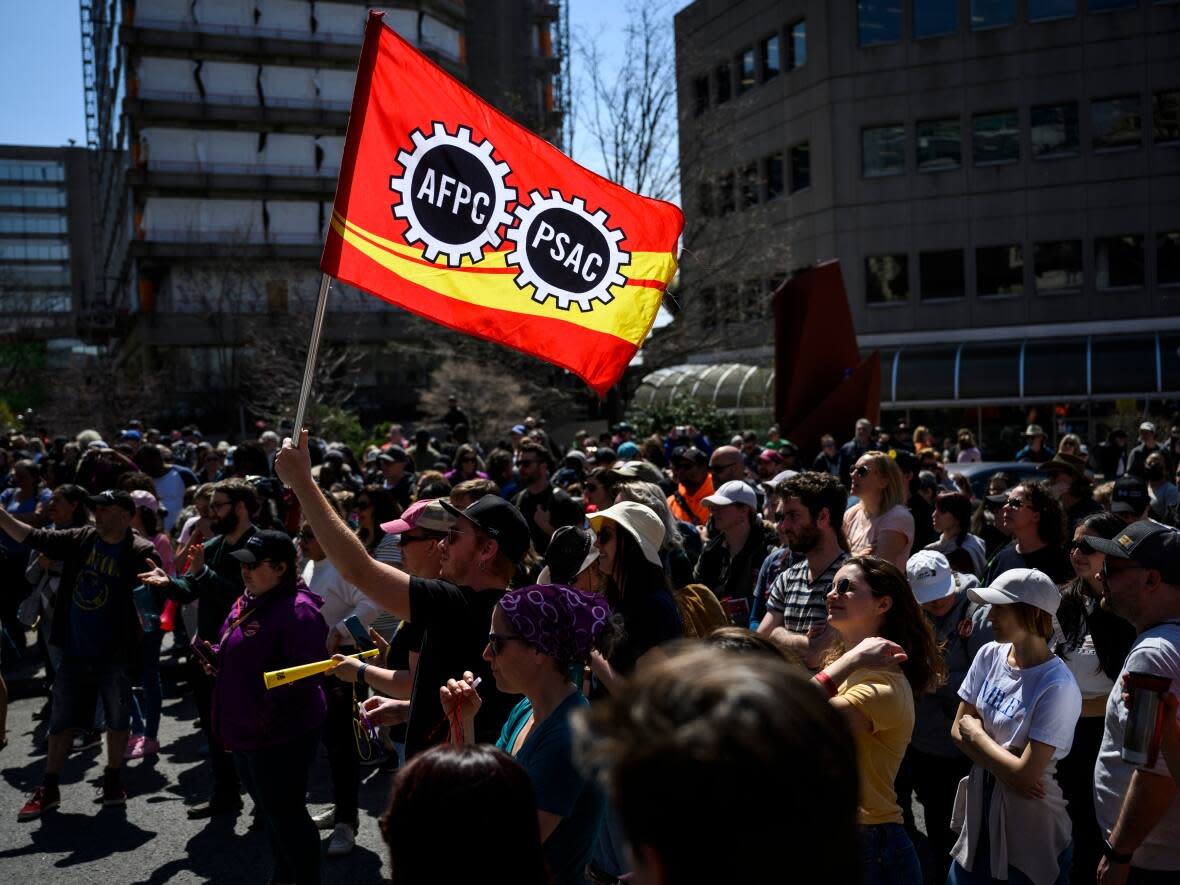Here's why some striking public servants are still going into work

Some federal public servants who are still working despite being part of the ongoing strike — now in its 12th day — say they disagree with the union's stance and don't believe their wages are unfair.
About 96 per cent of non-essential workers in the Treasury Board group of striking Public Service Alliance of Canada (PSAC) workers took strike action during the first week of the labour stoppage, according to government figures.
Negotiations between the federal government and striking PSAC members has continued this weekend, with the government releasing new details about their "final comprehensive offer" tabled Friday afternoon.
The deal includes an "enhanced" wage proposal, according to the Treasury Board.
Neither party was available for an interview Sunday, but the union said on social media they were still at the bargaining table and that some progress had been made on wage demands and job security.
A large rally is expected to take place Monday in downtown Ottawa, and police have warned there could be disruptions to traffic in the core.
A different perspective
There are about 3,000 non-essential members of the Treasury Board group who aren't striking, which means they're either on certain kinds of leave or are continuing to work.
One such worker reached out to CBC to say they're working both remotely and in-person because they want to keep providing services.
They said they wanted to share the perspective of someone who doesn't feel represented by PSAC national president Chris Aylward.
"To see Mr. Aylward on the television expressing himself on behalf of public servants and our collective bargaining, the issues he was communicating, I didn't believe in [them]," said the worker, a PSAC member for more than 15 years.
"I didn't believe we don't have fair wages, I don't believe we don't have a fair deal."
When asked about wages, they said they're in a "higher bracket" and that people in lower brackets are still farther ahead than a lot of other workers, and that includes their pensions and benefits.
The worker also said they couldn't access their member number, which they needed to give feedback, get information intended only for PSAC members and ultimately cast a strike vote.
"To show up and stand in solidarity with my colleagues … I felt wouldn't be right because I didn't know the issues," they said.

'A step too far'
Another public servant who'd crossed the picket line also told CBC they didn't agree with the wage demands being made by the union.
CBC is withholding the names of both workers as they fear backlash for their actions. Crossing a picket line is legal but heavily discouraged by unions, who see it as hurting their efforts.
The second PSAC member said they'd been with the federal public service for about 17 years and are in a position where they manage other workers.
They said they felt the government's offer of a nine per cent wage increase was "reasonable," despite the union wanting a larger raise.
We each have our own values, our own beliefs. And you know, you do you. But I have to do me as well. - One PSAC member who is not striking
"The people who are going to have to pay for this wage increase are the citizens of Canada who are also equally affected by inflation," they said, adding they don't believe the government is a bad employer or bargaining in bad faith.
"We have pensions, we have sick leave, we have disability leave, we have mental health support, we have training budgets, we have vacation days."
They said they told the employees they manage before the strike that there would be no judgment or repercussions for their decisions. They said they didn't take part in the strike vote because they didn't want the union to have their personal information, but would have voted against it.
"We each live a different life. We each have our own values, our own beliefs. And you know, you do you. But I have to do me as well," they said.
They also said they're not taking on anyone else's work or doing overtime, and are communicating to other departments how their services will be affected by the strike.
"That's my way of kind of supporting the situation without picketing, because I feel that that's a step too far."

Not voting 'regrettable,' says union
Aylward declined an interview with CBC, but in a statement PSAC said they provided "ample opportunity" for people to vote at nearly 100 virtual and in-person sessions held over seven weeks across the country.
"It's always regrettable when any member of our union believes they didn't get a fair chance to participate," the statement said. "But clearly tens of thousands of members did."
Only 35 per cent of 120,000 striking federal workers cast ballots in the vote to strike, according to a federal labour board ruling.
Documents show only 42,421 PSAC members voted, and of those, more than 80 per cent voted in favour of a strike.
The Federal Public Sector Labour Relations and Employment Board did find voting irregularities of "significant concern" involving incorrect email addresses and wrong voting dates, but said the shorter voting window probably did not affect the strike vote's outcome.


